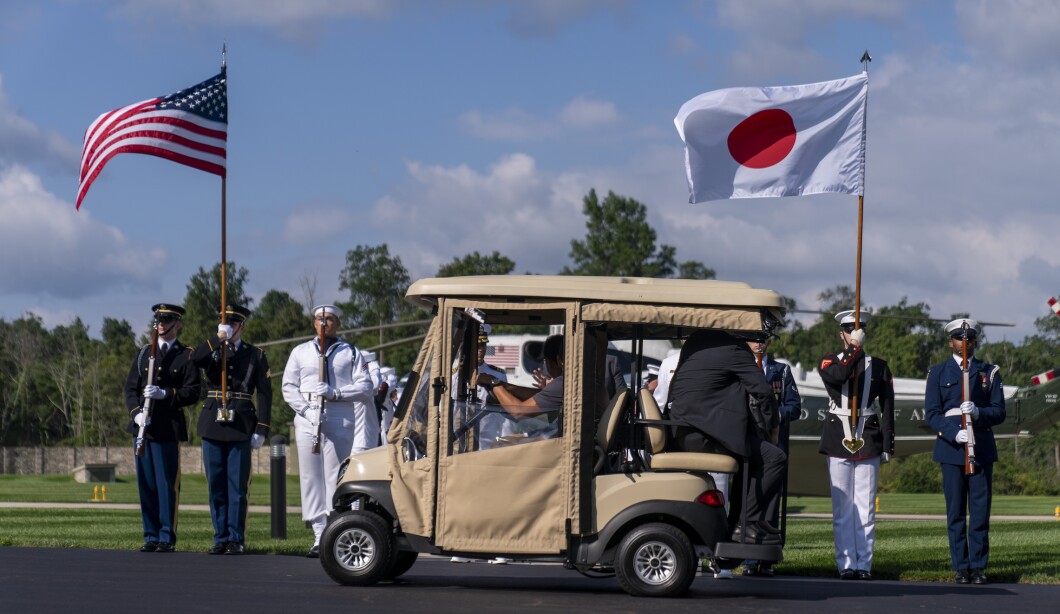
Japanese fighter pilots “scrambled to cope with a suspected intrusion” into the country’s airspace, according to defense officials, amid a joint military patrol by China and Russia.
“JSDF continues to respond to protect our territory and peace for the people of Japan 24/7,” the Japan Joint Staff said Friday on social media.
HUNTER BIDEN INVESTIGATION: JOE BIDEN’S PSEUDONYMS HID UKRAINE-RELATED MESSAGES INVOLVING SON
The incident occurred Thursday as Japanese Prime Minister Fumio Kishida was scheduled to arrive in Washington, D.C., for a historic summit with President Joe Biden and South Korean President Yoon Suk Yeol, two key U.S. allies long divided by the acrimonious legacy of the Second World War. Beijing defended the drills as a “customary practice,” even while objecting to the trilateral summit.
“The international community has its fair judgment on who is stoking conflicts and exacerbating tensions,” Chinese Foreign Ministry spokesman Wang Wenbin said Friday. “Attempts to cobble together various exclusionary groupings and bring bloc confrontation and military blocs into the Asia-Pacific are not going to get support and will only be met with vigilance and opposition from regional countries.”

Yet Japanese officials maintained that the drills are “clearly intended as a show of force against Japan.” The fighter jets reportedly scrambled in response to the appearance of a pair of Russian Ilyushin-38s, which were designed for anti-submarine warfare and maritime surveillance, while Russian and Chinese naval forces continued a joint exercise.
“In the East China Sea, an exercise was conducted to replenish ships with water and fuel supplies from support vessels,” the Russian Defense Ministry said Friday. “A detachment of ships of the Russian Navy and the PLA Navy is currently operating in the waters of the East China Sea and has covered more than 6,400 nautical miles since the beginning of the patrol.”
CLICK HERE TO READ MORE FROM THE WASHINGTON EXAMINER
Japan and South Korea have moved to improve their diplomatic and security cooperation in part due to Russia’s campaign to overthrow Ukrainian President Volodymyr Zelensky. Russian President Vladimir Putin has invoked Russia’s nuclear weapons arsenal at key junctures throughout the conflict in an apparent effort to deter Western intervention on behalf of Ukraine, and Kishida fears that North Korean dictator Kim Jong Un or Chinese General Secretary Xi Jinping could take inspiration from that example.




